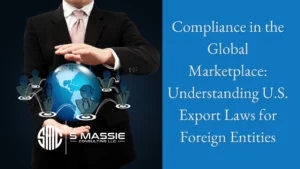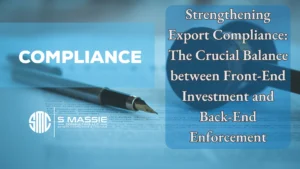Trade deals play a significant role in shaping global economic relations. They are bilateral or multilateral agreements between countries that establish terms and conditions for conducting trade. These agreements aim to facilitate commerce, promote economic growth, and foster cooperation among nations. However, trade deals are not without their risks, particularly when it comes to political factors that can influence their outcomes. In this article, we will explore the relationship between trade deals and political risks, examining their implications and offering insights into how businesses can navigate these challenges successfully.

Understanding Trade Deals and Political Risks
Trade deals are agreements that govern the exchange of goods and services between countries. These agreements establish rules and regulations, reduce trade barriers such as tariffs and quotas, and provide a framework for resolving disputes. They can be bilateral, involving two countries, or multilateral, involving multiple nations.
Political risks, on the other hand, refer to uncertainties and challenges arising from political factors that can affect the outcomes of trade deals. These risks can include regulatory changes, geopolitical tensions, domestic politics, and changes in leadership.
In the following sections, we will delve deeper into the relationship between trade deals and political risks, examining how political factors can influence the success or failure of trade agreements.
The Intersection of Trade and Politics
Trade and politics are intertwined in various ways. Political decisions and actions can directly impact trade policies, market access, and regulatory frameworks. Trade agreements, in turn, can have far-reaching political implications by shaping diplomatic relations, fostering cooperation, and influencing economic development.
Governments play a crucial role in negotiating and implementing trade deals, representing the interests of their countries and constituents. Political ideologies, public opinion, and geopolitical considerations all come into play during the negotiation and ratification processes.
The Impact of Political Risks on Trade Deals
Political risks can significantly influence trade deals, introducing uncertainties and challenges that businesses and policymakers must navigate. Here are some key political risks that can impact trade agreements:
Regulatory Changes and Policy Shifts
Political transitions or shifts in government can lead to changes in trade policies and regulations. New administrations may seek to prioritize different industries, alter tariff structures, or impose new trade barriers. These shifts can disrupt established trade relationships and require businesses to adapt their strategies accordingly.
Geopolitical Tensions and Conflicts
Geopolitical tensions and conflicts between nations can pose significant risks to trade deals. Trade disputes, embargoes, or the threat of military conflict can disrupt supply chains, create market uncertainties, and impact business operations. Businesses engaged in international trade must monitor geopolitical developments and assess the potential risks to their operations.
Domestic Politics and Populism
Domestic politics and populist movements can influence trade agreements. Protectionist sentiments and anti-globalization rhetoric may lead to the renegotiation or withdrawal from existing trade deals. Such actions can have far-reaching consequences for businesses relying on international markets and supply chains.
Changes in Leadership and Government
Leadership changes, such as elections or political crises, can introduce uncertainties into trade agreements. New leaders may have different priorities and approaches to trade, requiring businesses to adapt to shifting policies. Political instability can create challenges for long-term planning and investment decisions.
Strategies for Managing Political Risks in Trade Deals
While political risks are inherent in trade deals, businesses can adopt strategies to mitigate their impact. Here are some key approaches to managing political risks effectively:
Diversification of Markets and Suppliers
Diversifying markets and suppliers can help reduce dependency on a single country or region. By expanding their reach and establishing relationships with multiple partners, businesses can minimize the risks associated with political changes in specific markets.
Robust Risk Assessment and Monitoring
Conducting comprehensive risk assessments and monitoring political developments are essential. Businesses should stay informed about regulatory changes, geopolitical tensions, and domestic political dynamics that can affect trade agreements. This information can inform strategic decision-making and contingency planning.
Building Strong Government and Stakeholder Relationships
Developing strong relationships with governments, trade associations, and local stakeholders can provide businesses with valuable insights and support. Engaging with policymakers and influencers can help shape trade policies and provide access to resources that mitigate political risks.
Legal and Regulatory Expertise
Navigating the legal and regulatory landscape is crucial for successfully managing political risks. Businesses should seek legal advice and expertise to ensure compliance with trade regulations, assess the impact of policy changes, and navigate dispute resolution mechanisms effectively.
Contingency Planning and Flexibility
Having contingency plans and maintaining flexibility is essential in the face of political uncertainties. Businesses should develop alternative scenarios and response strategies to mitigate the potential risks associated with political changes. Agility and adaptability are key to navigating turbulent trade environments.
Case Studies: Examples of Political Risks in Trade Deals
To illustrate the impact of political risks on trade deals, let’s explore a few case studies:
The United Kingdom’s exit from the European Union (Brexit): The decision to leave the EU introduced significant uncertainties and complexities in trade relations between the UK and the EU member states. The negotiation process, regulatory adjustments, and changes in market access created challenges for businesses operating in both regions.
US-China Trade War: The trade tensions between the United States and China led to the imposition of tariffs, trade restrictions, and disruptions in global supply chains. The conflict had far-reaching implications for businesses worldwide, particularly those heavily reliant on Chinese markets.
NAFTA Renegotiation: The renegotiation of the North American Free Trade Agreement (NAFTA) introduced uncertainties for businesses operating in North America. The negotiations and subsequent establishment of the United States-Mexico-Canada Agreement (USMCA) required companies to adapt to new trade rules and regulatory frameworks.
These case studies highlight the complexity and risks associated with political factors in trade deals. Businesses must be prepared to navigate such challenges effectively.
The EU-China Trade Deal: A Political Perspective
When a trade deal between the European Union and China was hastily completed at the close of 2020, much speculation grew as to whether it was truly due to finally coming to a solid agreement for member states or if it was more politically motivated than EU President Ms. Merkel claims.
While the deal has been in the works for seven
years, the trade and political landscape have changed significantly during that time. Foreign Trade Agreements (FTAs) are not only used to facilitate the movement of goods and services but also to serve political goals. Typically, trade deals are made with allies rather than political foes.
In the case of the EU-China trade deal, Ms. Merkel strongly believed in engaging with China rather than confronting it, considering it the best policy for a declining West facing a rapidly rising China. However, there are concerns regarding whether China will uphold its end of the agreement and follow through with the concessions made at the last minute to seal the deal with the EU. The European Parliament has also expressed deep concerns about human rights violations in China, raising uncertainty about the ultimate ratification of this new agreement.
The sudden EU trade deal with China may strain relations with the United States and President Biden. The US had indicated a desire to work with the EU toward a more unified transatlantic approach to trade with China. This unified front could have led to a stronger position and potentially better trade deals, while also exerting more political pressure on China regarding its other actions. However, the abrupt conclusion of the EU-China trade deal without involving the US has left it out of the conversation and in a different position.
From an international perspective, the trade and political landscape in the US have been viewed as tumultuous in recent years, creating uncertainty about the future. This has led President Emmanuel Macron of France to advocate for Europe’s “strategic autonomy” and potentially influenced the quiet finalization of the trade deal between the EU and China.
Although the US has enacted free trade agreements with 20 countries, neither China nor the EU is included in that list. However, trade between the US and the EU is already extensive, with very low tariff barriers (averaging less than 3%). The European Commission emphasizes that the EU and the US have the largest bilateral trade and investment relationship and enjoy the most integrated economic relationship globally. About one-third of the trade across the Atlantic consists of intra-company transfers. Maintaining a strong relationship with the EU is crucial for the US economy. Leveraging this transatlantic relationship politically can present a united and powerful front.
Conclusion
Trade deals are influenced by political factors, and political risks can have a significant impact on their outcomes. The EU-China trade deal serves as an example of how political motivations and concerns can shape trade agreements. The relationships between countries, leadership changes, and geopolitical tensions all contribute to the complex landscape of trade deals. Businesses and policymakers must navigate these risks by diversifying markets, conducting robust risk assessments, building strong relationships, seeking legal expertise, and maintaining flexibility. By doing so, they can mitigate the potential disruptions caused by political risks and ensure the continuity of trade operations.
FAQs (Frequently Asked Questions)
Political risks can introduce uncertainties and challenges that affect trade policies, market access, and regulatory frameworks, potentially disrupting established trade relationships.
Businesses can mitigate political risks through diversification of markets and suppliers, robust risk assessment and monitoring, building strong government and stakeholder relationships, seeking legal and regulatory expertise, and developing contingency plans.
Examples of political risks include regulatory changes and policy shifts, geopolitical tensions and conflicts, domestic politics and populism, and changes in leadership and government.
Businesses should stay informed about political developments, conduct thorough risk assessments, maintain flexibility through contingency planning, and engage in dialogue with relevant stakeholders.
Political risks can disrupt supply chains, create market uncertainties, impact business operations, and require companies to adapt their strategies, potentially affecting profitability and competitiveness.
Export compliance is a critical aspect of international trade that demands your attention. By understanding and adhering to export regulations, implementing robust compliance programs, and leveraging technology solutions, you can navigate the complex export landscape while maximizing profits.
Furthermore, conducting thorough market research, building strong relationships, optimizing pricing strategies, and capitalizing on free trade agreements will enhance your profitability in export operations. Striking a balance between compliance and profitability will ensure your business thrives in the global marketplace, paving the way for sustainable growth.
S Massie Consulting LLC specializes in helping businesses comply with export regulations. The company provides tailored written export compliance programs that include policies and procedures to ensure that exports are compliant with applicable laws and regulations. Additionally, the company offers employee training programs designed to educate employees on the regulations and laws governing exports, making sure they understand their responsibilities and the consequences of non-compliance.


